Long Reads
Ketsbaia’s Kick-Off Klub
The Premier League roars back to life this weekend, and St James’ Park will be the stage for a clash that feels heavier than its early-season billing. Newcastle United, still searching for their first win, welcome Wolverhampton Wanderers, a side yet to taste even a single point. For Eddie Howe’s men, this is about momentum and reassurance, particularly given they have recruited a new strike force since the previous game. For Wolves, it is about survival instincts kicking in before autumn has even settled on the Tyne. Both teams need a spark. Only one will find it.
Arsenal enter this season like a symphony intent on its crescendo. The motifs are familiar, positional play, set‑piece cunning, the emotional clarity Mikel Arteta has coaxed from a once-fractured club, yet the instrumentation is richer, louder, and unmistakably more expensive. In a summer that felt like a manifesto, the Gunners did not whisper their intent; they wrote it across Europe in transfer fees and stylistic choices.
or many Geordies, being inside the ground for Barcelona at home is as big as it gets, a once-in-a-generation moment. To see tickets siphoned away to a private school in Dundee, while thousands of diehards with memberships or season tickets missed out, turns what should have been pure pride into bitterness and anger.
Tottenham have spent the summer not just changing their squad but rewriting their story. Ange Postecoglou’s high-wire act is gone, replaced by Thomas Frank’s pragmatism and precision. Spurs are no longer the league’s great entertainers; they are something more dangerous: a team that knows exactly what it wants to be. For Newcastle United, that makes them a rival to watch with both eyes open.
Newcastle United’s new CEO, David Hopkinson, has penned an open letter to supporters as he officially settles into his role at St. James’ Park. The Canadian executive, who started last week, replaces Darren Eales after the former chief stepped down due to health issues.
Even in a season that began with turbulence, Manchester City remain the gravitational centre of English football. They are the team that bends the league’s geometry, the side whose flaws are scrutinised not because they are fatal, but because they are rare. Yet as the 2025/26 campaign stirs into life, the question for Newcastle United is this: does Pep Guardiola’s remodelled City still represent an immovable object in the race for the Champions League, or has the door opened, even slightly, for others to slip through?
Liverpool do not so much enter this season as stride into it, their chest still warm from the ribbons of last May. Arne Slot’s first year brought a title and a sense of inevitability; his second begins with a question: can they sustain the ferocity of their renaissance while reinventing themselves on the fly?
Chelsea have spent the summer not so much rebuilding as reimagining. A Club World Cup crown in June gave them a taste of the old grandeur, but Enzo Maresca’s second season is about something more enduring: control, identity, and a squad sculpted to his exacting geometry. For Newcastle United, Chelsea are no longer a chaotic subplot, they are a rival with a plan, and that makes them dangerous.
There are seasons when hope feels like a drumbeat, and seasons when it sounds like a hollow echo. Manchester United under Rúben Amorim have plenty of the latter. This is not a rival for the Champions League places, barely a rival for the European conversation at all. The new head coach arrived with pedigree and talk of renewal, but the early weeks of 2025/26 have laid out the same drift we saw last season. Manchester United will be fortunate to finish in the top ten; the top four is a mirage shimmering on the far horizon.
That brings an end to an international break that felt like an eternity. Now, all eyes turn to the planes bringing our lads back to Tyneside ahead of a vitally important home game against Wolves on Saturday.





